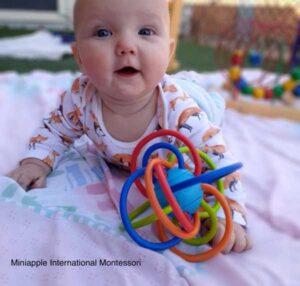
Choosing the right early childhood education program is a vital decision that every parent faces. With so many options available, it becomes crucial to understand the distinctions and benefits of each to ensure that children not only receive care but also a strong educational foundation.
A Montessori program represents a holistic approach to early learning, differing significantly in philosophy and practice from other childcare programs in several ways. This post explores the unique attributes of Montessori education and why it could be the preferred choice for your child’s development.
Emphasis on Individual Learning Pace
Montessori programs are renowned for their focus on the individual learning journey of each child. The Montessori classroom embraces the belief that children learn at their own pace. This tailored approach allows for the development of personal discipline and intrinsic motivation, as children are encouraged to explore subjects they show interest in and are provided with the time and resources to fully engage with those subjects.
Development of a Broad Skill Set
In a Montessori setting, children are exposed to a diverse array of learning experiences designed to develop not just academic capabilities but also social, emotional, and life skills. Educational materials and curricula are crafted to foster independence, decision-making, and problem-solving. Children learn to interact with their environment in a purposeful way, which promotes a sense of responsibility and boosts their confidence in their abilities.
Intrinsic Motivation and Love of Learning
One of the cornerstones of the Montessori philosophy is nurturing an innate love of learning. Rather than relying on external rewards or punishment, Montessori educators guide children towards self-discipline and self-motivated learning. This can result in a deeply rooted desire to explore and learn that stays with children throughout their lives, making them learners who are not solely driven by grades or accolades.
Respectful Social Interactions
Montessori programs typically encompass mixed-age classrooms, reflecting the real-world environment where individuals must interact with others of various ages and abilities. This dynamic enables older children to become role models and mentors to younger peers, promoting leadership skills and empathy. These interactions also provide practical exercises in respect, collaboration, and communication.
Hands-On Learning Environment
The Montessori Method emphasizes hands-on, experiential learning. Rather than passive instruction, children actively engage with educational materials that are tangible and tactile. This approach is grounded in the belief that children learn best through direct experience and interaction with their environment, reinforcing memory retention and comprehension.
Prepared Environment That Encourages Discovery
Montessori classrooms are meticulously organized and equipped with materials that meet the developmental needs of children at various stages. Everything within a Montessori environment is accessible to the child, allowing them to freely select activities that pique their curiosity. This autonomy enables children to become active participants in their learning process, instilling a sense of independence.
Educators as Guides
Educators in a Montessori program act as guides or facilitators rather than instructors. They observe and assist only when necessary, allowing children the space to learn from their own experiences, while presenting exciting new lessons based on your child’s developmental readiness. This cultivates a student-centered learning culture, where children feel supported but are also encouraged to progress through self-discovery and exploration.
Foundation for Future Academic Success
A Montessori program lays down a robust foundation for lifelong academic and personal achievement. The skills and habits developed in a Montessori classroom – such as focus, self-regulation, and a proactive attitude toward learning – can be invaluable as children transition to more traditional school environments in later years.
A Montessori program represents a comprehensive, child-centric educational approach that seeks to develop a child’s full potential. An investment in Montessori education is an investment in not only the care but also the holistic development of your child, ensuring they are equipped with the tools for success in all walks of life.
Contact Miniapple International Montessori School to learn more about our programs.

